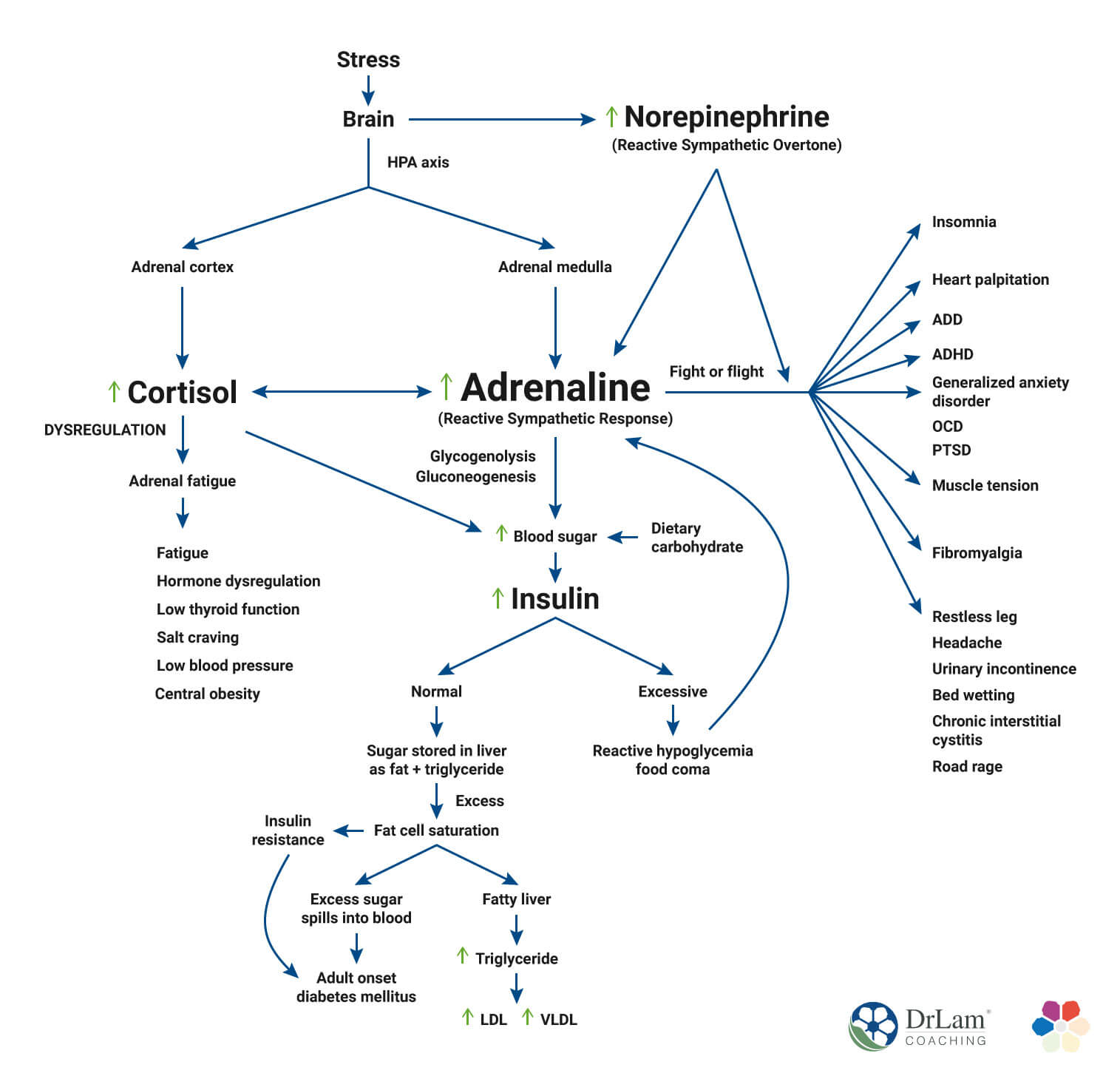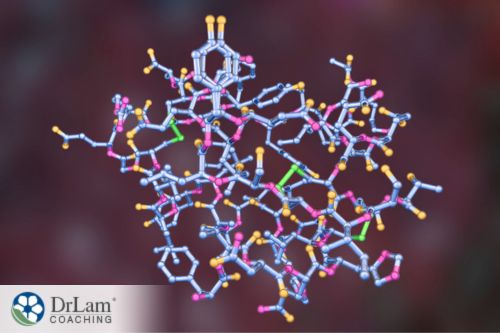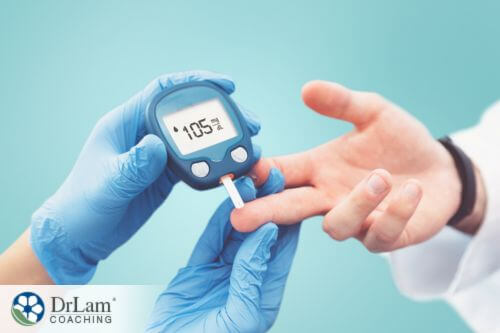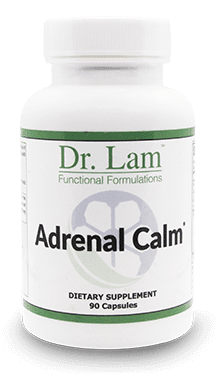
 Insulin, cortisol, and adrenaline are three hormones that play important roles in regulating various physiological processes in the human body. They are interconnected in complex ways and can have significant effects on each other's functions. While insulin and cortisol are involved in day-to-day stress, adrenaline is released in times of emergency as part of the "fight or flight" response. Chronic stress, however, can lead to long-term overproduction and release of cortisol and adrenaline, which can result in adrenaline dominance.
Insulin, cortisol, and adrenaline are three hormones that play important roles in regulating various physiological processes in the human body. They are interconnected in complex ways and can have significant effects on each other's functions. While insulin and cortisol are involved in day-to-day stress, adrenaline is released in times of emergency as part of the "fight or flight" response. Chronic stress, however, can lead to long-term overproduction and release of cortisol and adrenaline, which can result in adrenaline dominance.
Adrenaline dominance refers to a condition where the body produces an excessive amount of adrenaline, which can have detrimental effects on the body. Adrenaline, also known as epinephrine, is a hormone released by the adrenal glands in response to stress or danger, triggering the "fight or flight" response. It acts as a rapid response system to prepare the body for a perceived threat, increasing heart rate, raising blood pressure, and promoting the breakdown of glycogen into glucose in the liver, leading to increased blood glucose levels.
Adrenaline also promotes the release of fatty acids from adipose tissue for energy and increases oxygen delivery to muscles. Adrenaline acts quickly to provide the body with immediate energy for dealing with a perceived threat or stressor. But while adrenaline's role in the stress control continuum is crucial, excessive adrenaline production can lead to various symptoms and disorders.
Adrenaline dominance can be connected to various symptoms and disorders that affect different systems of the body. Some symptoms of high adrenaline include:
In addition, some conditions can also cause spikes in adrenaline. These include:
Adrenaline's direct tie to insulin also leads to other symptoms that include:

The interactions among insulin, cortisol, and adrenaline are complex and can vary depending on the specific circumstances. During times of acute stress, such as encountering a threat or danger, cortisol and adrenaline levels typically rise, leading to an increase in blood glucose levels to provide the body with immediate energy for the "fight or flight" response. Insulin levels may decrease in response to the increased cortisol and adrenaline levels to prevent glucose uptake into cells, ensuring that glucose remains available in the bloodstream for immediate energy needs.
However, chronic stress, such as prolonged exposure to high levels of cortisol, can disrupt insulin sensitivity and lead to insulin resistance, a condition where cells become less responsive to the effects of insulin, resulting in elevated blood glucose levels and an increased risk of developing diabetes.
Cortisol can also stimulate gluconeogenesis, leading to increased glucose production in the liver, which can further contribute to elevated blood glucose levels. Chronic stress leads to sustained high levels of cortisol and adrenaline, leading to a state of "allostatic load" that can result in eating more, obesity, and ultimately increased risk of type 2 diabetes.
A proper stress response must factor in balancing adrenaline, cortisol, and insulin levels to allow the body to rest and reset from stress. Other studies suggest that adrenaline dominance may play a role in the development of metabolic disorders such as obesity, insulin resistance, and type 2 diabetes, particularly in individuals with a family history of these conditions.
 Insulin is a hormone produced by the pancreas that plays a crucial role in regulating glucose metabolism in the body. It helps to transport glucose from the bloodstream into cells, where it can be utilized as energy or stored for future use. Insulin also helps to decrease the levels of glucose in the bloodstream by facilitating its conversion into glycogen, a stored form of glucose found in the liver and muscles.
Insulin is a hormone produced by the pancreas that plays a crucial role in regulating glucose metabolism in the body. It helps to transport glucose from the bloodstream into cells, where it can be utilized as energy or stored for future use. Insulin also helps to decrease the levels of glucose in the bloodstream by facilitating its conversion into glycogen, a stored form of glucose found in the liver and muscles.
Insulin is mainly produced by beta cells in the pancreas in response to high blood glucose levels, such as after a meal. Once released into the bloodstream, insulin acts on various tissues in the body, including muscle, liver, and fat cells, to promote glucose uptake, storage, and utilization. This hormone is also involved in promoting protein synthesis and inhibiting glucose production in the liver.
Cortisol is a steroid hormone produced by the adrenal glands in response to stress. It plays a crucial role in the body's response to stress by increasing energy production and suppressing inflammation. Cortisol also regulates glucose metabolism by stimulating the production of glucose from amino acids in the liver, a process known as gluconeogenesis. This can help increase blood glucose levels during times of stress or fasting.
Cortisol is released in a diurnal rhythm, with the highest levels in the morning and the lowest levels at night. This hormone is involved in the body's response to stress by increasing blood glucose levels, suppressing the immune system, and promoting the breakdown of fats for energy. Cortisol can stimulate gluconeogenesis, which is the production of glucose from non-carbohydrate sources such as amino acids, in the liver, leading to increased blood glucose levels.
However, chronic stress or prolonged exposure to high levels of cortisol can disrupt insulin sensitivity and contribute to insulin resistance, which is a risk factor for diabetes and other metabolic disorders.
Adrenaline, also known as epinephrine, is a hormone produced by the adrenal glands that plays a vital role in the body's response to stress or danger. It triggers the "fight or flight" response, which is a rapid response system that prepares the body to deal with a perceived threat. Adrenaline increases heart rate, raises blood pressure, and promotes the breakdown of glycogen into glucose in the liver, leading to increased blood glucose levels.
Adrenaline also promotes the release of fatty acids from adipose tissue for energy and increases oxygen delivery to muscles. This hormone acts quickly to provide the body with immediate energy for dealing with a perceived threat or stressor.
Insulin, cortisol, and adrenaline are interconnected hormones that play important roles in regulating glucose metabolism and the body's response to stress. The interactions among these hormones can be complex and vary depending on the specific circumstances.
During times of acute stress, such as a threat or danger, cortisol and adrenaline levels typically rise, leading to an increase in blood glucose levels to provide the body with immediate energy for the "fight or flight" response. Insulin levels may decrease in response to the increased cortisol and adrenaline levels to prevent glucose uptake into cells, ensuring that glucose remains available in the bloodstream for immediate energy needs.
Chronic stress, and the resulting prolonged exposure to high levels of cortisol and adrenaline, can disrupt insulin sensitivity and lead to insulin resistance, a condition where cells become less responsive to the effects of insulin, resulting in elevated blood glucose levels and an increased risk of developing diabetes. Cortisol can also stimulate gluconeogenesis, leading to increased glucose production in the liver, which can further contribute to elevated blood glucose levels.
 As adrenaline levels rise, insulin levels fall. This increases blood sugar levels to keep energy available to fight or flee. But eventually, insulin levels must rise to bring the sugar into cells for use, and if an insulin agonist like cortisol is also present, higher insulin levels may be needed, leading to potential insulin resistance. Chronic stress and adrenaline dominance can disrupt the balance of various hormones, including insulin, leading to metabolic dysregulation and the development of insulin resistance and type 2 diabetes.
As adrenaline levels rise, insulin levels fall. This increases blood sugar levels to keep energy available to fight or flee. But eventually, insulin levels must rise to bring the sugar into cells for use, and if an insulin agonist like cortisol is also present, higher insulin levels may be needed, leading to potential insulin resistance. Chronic stress and adrenaline dominance can disrupt the balance of various hormones, including insulin, leading to metabolic dysregulation and the development of insulin resistance and type 2 diabetes.
Adrenaline dominance refers to a state where the body produces an excess amount of adrenaline. It is caused by chronic unrelenting stress, which can lead to long-term overproduction and release of cortisol from the adrenal cortex and adrenaline from the adrenal medulla. The resulting increase in blood sugar helps the brain to function in times of emergency.
A body under stress also tends to reach out for more sugary foods, such as candy, soda pop, or pasta. Along with cortisol and adrenaline, this mechanism ensures our blood sugar rises to meet the challenges of a body under stress. Unfortunately, high blood sugar over time has negative effects.
As blood sugar rises, insulin from the pancreas is secreted as a compensatory regulatory hormone to return the blood sugar back to normal once the survival danger has passed. Chronic overeating and stress, however, can lead to the overproduction of insulin over time. This hyperinsulinemia can lead to subclinical hypoglycemia (as evidenced by food coma after a meal high in refined carbohydrates) that, in turn, acts as an alarm and triggers more adrenaline release from the adrenal glands.
This is a vicious cycle that ultimately destabilizes the body, with ever more adrenaline created, leading to irritability, panic attack, heart palpitations, and other symptoms. These destabilizing events can eventually land a sufferer in the emergency room with a sense of impending doom, but the lab workup is usually normal.
A proper stress response must factor in adrenaline balance, along with cortisol rhythm and insulin monitoring, in a balanced fashion to allow the body to rest and reset from stress.
There are a number of lifestyle factors that can contribute to adrenal fatigue and the development of adrenaline dominance. Some of these include chronic stress, lack of sleep, poor nutrition, and overexertion. In order to support healthy stress modulation and prevent these conditions, there are several natural compounds and lifestyle modifications that may be helpful.
For supporting healthy adrenal function, it is important to consume a diet rich in nutrient-dense foods such as fruits, vegetables, lean protein, and healthy fats. Vitamin C in various forms, including supplements and foods such as citrus fruits and bell peppers, can also help support adrenal function. Vitamin B5, also known as pantothenic acid, is another important nutrient for adrenal health and is found in foods such as eggs, liver, and mushrooms.
Here are the natural compounds and herbs that can be helpful in supporting healthy stress modulation mechanisms:
For the adrenals:
For insulin resistance:
In addition to the above, the following natural herbs and minerals have also been found to have stress-reducing effects:
 Rhodiola Rosea: A herb that has been shown to reduce the symptoms of stress, anxiety, and fatigue. It has also been found to improve mood and cognitive function. A 2010 review published in the journal Phytomedicine found that Rhodiola reduced symptoms of burnout and improved cognitive performance in participants with stress-related fatigue. Dosage: 200-600mg per day, standardized to contain 3% rosavins and 1% salidroside.
Rhodiola Rosea: A herb that has been shown to reduce the symptoms of stress, anxiety, and fatigue. It has also been found to improve mood and cognitive function. A 2010 review published in the journal Phytomedicine found that Rhodiola reduced symptoms of burnout and improved cognitive performance in participants with stress-related fatigue. Dosage: 200-600mg per day, standardized to contain 3% rosavins and 1% salidroside.However, there are a few important precautions to note. Do not take supplements without consulting an experienced provider who understands adrenaline dominance and any other medical conditions you may have. If you are prone to being stimulated, it might not be the right time to do adaptogens like ashwagandha or rhodiola. If you have tendencies towards paradoxical reactions to supplements, always start low and go slow, and make sure to work on your detoxification pathways.
Insulin, cortisol, and adrenaline are three hormones that play important roles in regulating various physiological processes in the human body. They are interconnected in complex ways and can have significant effects on each other's functions.
Adrenaline dominance refers to a condition where the body produces an excessive amount of adrenaline, which can have negative effects on health and well-being. Chronic stress can lead to long-term overproduction and release of cortisol and adrenaline, disrupting insulin sensitivity and leading to insulin resistance and other metabolic disorders.
It is important to maintain a healthy balance of these hormones for overall health and well-being. Natural compounds such as vitamin C, vitamin B5, Rhodiola, ashwagandha, magnesium, and others can help lower insulin resistance and support healthy stress modulation mechanisms. Consulting with a healthcare professional is recommended before starting any supplement regimen.
By understanding the complex interplay of these hormones and taking steps to support healthy stress responses, individuals can optimize their health and well-being and reduce the negative effects of chronic stress on their bodies. Dr. Lam's Adrenal Fatigue Recovery Program is just the tool you need. In this program, you'll learn about your stage of adrenal fatigue, how to use the supplements, which foods to eat, the exercises that benefit you, and much more. This course is about helping you make informed choices and avoiding the pitfalls Dr. Lam faced in his recovery journey.

Find Tranquility: Adrenal Calm for Adrenaline Dominance
Adrenaline actually causes a decrease in insulin, to keep blood sugar high and ensure cells have more spare energy to fight or flee from a stressor. However, when adrenaline dominance keeps adrenaline high over a long period, this effect can cause the body to produce more insulin to overcome the supressive effect, eventually leading to chronically high insulin and insulin resistance.